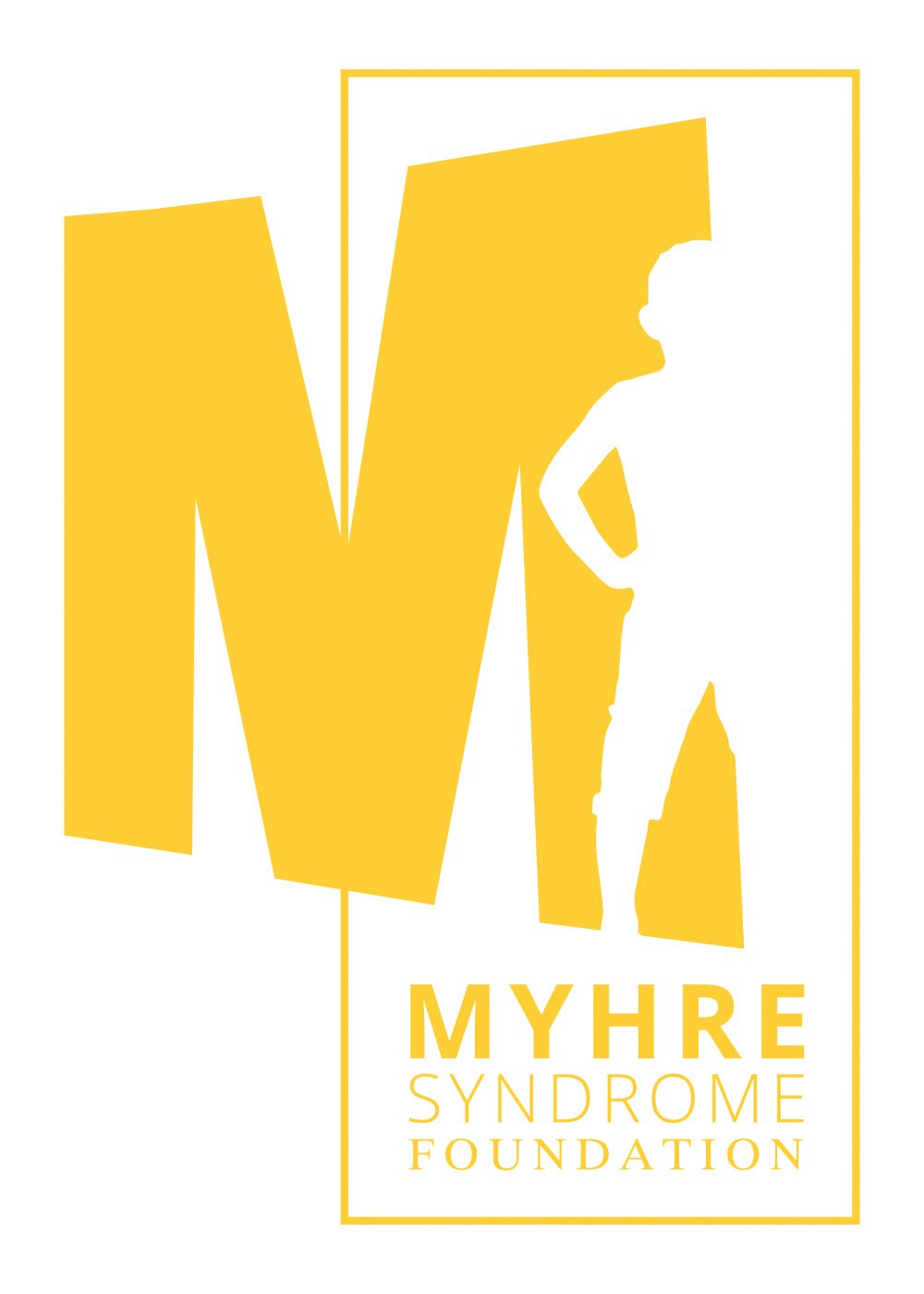At MSF, we value the Myhre community's incredible support and your contributions to better understanding the syndrome, from engaging in coffee hours to providing essential information for our patient registry. There are numerous avenues to get involved in research and provide data, each of which we'll explore below. But first, let's talk about what we mean by patient data.
Data is the foundation of research endeavors. It can encompass information on genetic variants, diagnosis age, symptoms, progression, and medical histories. Additionally, it extends to the personal experiences detailing how Myhre syndrome impacts daily life and quality of life.
Given Myhre syndrome's rarity and heterogeneity (the differences we see from patient to patient), each individual's experience is unique. Some are born with symptoms, while others develop them gradually. Behavioral challenges may predominate in some, while physical symptoms are more evident in others. Indeed, it's often said that no two individuals with Myhre syndrome experience precisely the same type of symptoms.
Sharing your or your child's information holds immense significance because it provides unique and valuable insights for researchers striving to understand how Myhre syndrome manifests and evolves. This information will ultimately accelerate our journey toward effective treatments and a cure.
Ways you can share your data for research include:
Contributing Patient Data to the Myhre Syndrome Registry
Anonymized medical history and health data hold immense potential to advance evidence-based medicine. By securely sharing your anonymized patient data, you contribute to a vast pool of information that researchers can analyze to spot patterns, identify risk factors, and develop personalized treatments. We have recently updated the registry to include new questions on medications, mental health, and caregiver burden. Filling out the registry annually is important to see how Myhre syndrome symptoms might change with time.
Sign up or update your registry information here.
Giving Feedback: Amplifying the Impact
We value your voice and perspective. Participating in focus groups allows you to provide feedback that helps shape the direction of research studies. Your insights are invaluable in refining research objectives, improving patient experiences, and tailoring treatments. Together, we can ensure that research is patient-centered and delivers meaningful outcomes. We’ll be planning sessions later this year to hear your views.
Sharing Personal Accounts: FDA, Pharma & Industry
Personal experiences provide a unique lens through which the FDA (Food and Drug Administration), pharmaceuticals, and industry can better understand Myhre syndrome and its impact on patients and their families. The FDA is responsible for approving any treatment or cure for Myhre syndrome. Educating them and other partners early about the patient experience is an important step, and we’ll be setting up a meeting soon that we’d like you to join. If you’d like to contribute to this meeting, you can express your interest now to Kate at kwears@myhresyndrome.org
Sharing Samples: Fueling Medical Breakthroughs
Collecting patient data also involves collecting samples. This allows researchers to study Myhre syndrome thoroughly and discover drugs and therapies for its treatment and cure.
When researchers investigate a treatment, they begin work on preclinical studies. Preclinical means creating, monitoring, and testing in the lab to discover, prove, and determine what will work in a clinical trial (in a human body). Preclinical studies investigate whether the treatment or process works and is safe. Watch a video on the tools we’re implementing to advance Myhre syndrome research.
Preclinical testing can be done on animal models, where you can breed a fly, zebrafish, or mouse to have Myhre syndrome and monitor and test therapies on these models. Preclinical studies can also look at cells obtained via samples from someone with Myhre syndrome, such as blood, urine, saliva, and skin. Cell models are important because they allow scientists to see how Myhre cells behave and respond in the lab.
One example of this is collecting blood samples each year to identify biomarkers (a way to characterize and indicate Myhre). A good example of a biomarker in diabetes is the sugar levels in the blood. Biomarkers are used to evaluate the efficiency of a treatment and/or predict the evolution of the condition. To carry out work like this, we must collect patient samples.
“Myhre Syndrome Foundation has established a biorepository.
What is a biorepository? A place that stores biofluids (blood, saliva, urine, cerebrospinal fluid, etc) and tissue (skin biopsy, peripheral tissues).
Why donate? These stored items will be made readily available to interested researchers to facilitate research.
When can I donate? You can donate in conjunction with other clinical tests or independently.
How do I participate? If you are interested in participating, contact myoung@myhresyndrome.org”
— IRB Approved Communication
We have established a biorepository with our partners from COMBINEDBrain, who will collect and store samples. The independent nature of this biorepository is key. We want to attract more researchers to our mission and provide them with the tools to accelerate the science. Our Professional Advisory Board is eager and engaged in this approach, and it complements the ongoing work of our clinicians and researchers.
The process for giving samples is rigorous and adheres to all ethical and legal requirements. A key part of the process is that you understand your rights regarding data privacy, anonymity, and informed consent. If providing a sample is something you are interested in, we will provide you with a step-by-step process on what to expect. The process includes a virtual meeting with the biorepository team on the process and informed consent. At each stage, you will have time to consider your participation.
The independent nature of this biorepository is key. We want to attract more researchers to our mission and provide them with the tools to accelerate the science. Our Professional Advisory Board is eager and engaged in this approach, and it complements the ongoing work of our clinicians and researchers.
If you’re interested in joining any initiatives we have discussed or have questions, please get in touch with kwears@myhresyndrome.org
For specific questions on samples, please get in touch with myoung@myhresyndrome.org

